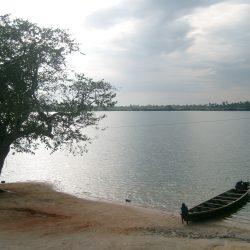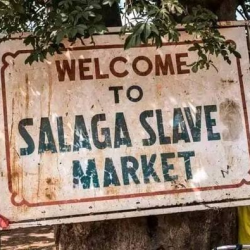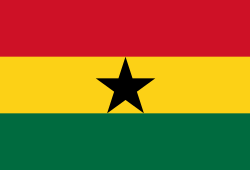The Aro settlements in the Oguta area hold significant historical importance in understanding the sociopolitical and economic dynamics of Igboland during the precolonial and colonial periods. After the Aro’s victory over the Ibibio in 1634, a vast network of influence spread across southeastern Nigeria, where the Aro people established themselves as central figures in the slave trade, religious authority, and regional governance. Their role in trade and the establishment of oracle centers throughout Igboland and beyond created a unique pattern of settlement and influence, particularly in the Oguta region.
1. The Aro Defeat of the Ibibio and the Rise of Aro Hegemony
- The 1634 defeat of the Ibibio by a coalition of Igbo and Akpa warriors from Akamkpa marked the beginning of Aro dominance.
- This victory opened pathways for the Aro to establish themselves as spiritual and economic leaders, forming a complex network of trade and political influence.
- The adoption of the Ibibio oracle and its integration into Aro religious practices further strengthened their position across Igboland.
2. The Aro Oracle System and Ubini Ukpabi’s Influence
- Ubini Ukpabi: Central to Aro spiritual hegemony, this oracle became the focal point for consulting Chukwu (the supreme god).
- The Aro’s control over the oracle allowed them to demand payments from those seeking divine guidance. Failure to pay could result in the petitioner’s enslavement under the pretext of an unacceptable sacrifice to Chukwu.
- Though often feared, Ubini Ukpabi was also seen as a fertility god, symbolized by the name “Uzoaru” (the road to Aro), reflecting its cultural integration in Igbo society.
3. Establishment of Other Oracles and Their Economic Roles
- Igwekala of Umunneoha: Positioned strategically near Oguta, this oracle served as a center for spiritual and economic activities.
- European ethnographers noted that Igwekala was often used by those seeking either healing or the power to harm others.
- Other oracles, such as Agballa Awka and Kamalu in Ozuzu, contributed to the economic network by establishing trade routes and religious authority.
4. Aro Slave Trading Networks in the Oguta Region
- The Aro utilized strategic locations, such as the Njaba River and Oguta Lake, to facilitate the slave trade, connecting Oguta to Delta markets in Isiokpo, Opobo, Bonny, and beyond.
- Izombe and Ejemekwuru: These regions saw destruction as the Aro expanded their slave trading activities, highlighting the extensive reach of the Aro’s economic network.
- Slave trading routes were intricately connected to cultural taboos in Igbo society, with twins and children with specific traits being trafficked as slaves.




5. Peaceful Aro Settlements and Their Sociopolitical Integration
- The Aro established peaceful settlements in various regions, such as Uzuakoli, Ihube, Ihiala, and Oguta.
- These settlements were sometimes formed in response to requests from local communities for protection against rival groups.
- For example, the Omadi village in Egbuoma invited Aro settlers to defend them against attacks from Uli, with notable families such as Ndi Nwaka and Ndi Anyiwo contributing to the Aro-Egbu community’s resilience.
6. Aro Settlement Patterns in Egbuoma and Egwe Communities
- In Egbuoma, the Aro clans organized into nine kindreds, referred to as “Umuchukwu” (God’s own children).
- Different Aro groups were strategically positioned around Egwe, providing a buffer against potential hostilities, particularly from Oguta expansionist drives.
7. Aro and Oguta Lake: Trade and Defense Routes
- The location of Oguta Lake was pivotal in the Aro’s economic and military strategies, allowing direct access to the Niger Delta.
- During the height of the slave trade in the 18th century, Oguta was one of the main Igbo slave markets, with routes connecting the town to major trade centers in the Delta.
8. Igwekala of Umunneoha’s Role in Trade and Religion
- Positioned near the Njaba River, Igwekala served as both a spiritual and economic hub, mirroring the functions of Ubini Ukpabi.
- This oracle offered a localized center of religious authority that helped control and facilitate trade through the Oguta region.
9. Intermarriage and Social Integration of the Aro
- Aro men strategically intermarried with influential families in host communities, thereby solidifying social bonds and securing loyalty from non-Aro communities.
- Marriages between Aro and local leaders ensured the safety and stability of trade routes, creating a durable network of kinship-based alliances.
10. Independent Aro Settlements: The Case of Abiaziem
- Abiaziem represented a rare case where the Aro settled without a host community, symbolized in the name “Abia-ziem,” meaning “I have now come to stay.”
- This settlement showcased the Aro’s determination to establish autonomous communities within their influence.
11. Economic Contributions of the Aro in Oguta
- Besides the slave trade, the Aro introduced agricultural innovations, firearms, and new trading goods, which transformed the economic landscape.
- Their introduction of items such as special wrappers and cassava contributed to Oguta’s development as a commercial center.
12. Transition from Slave Trade to Palm Oil Trade
- With the abolition of the slave trade, Oguta’s economy shifted focus to palm oil, which maintained its relevance as a vital trade center.
- The Aro adapted to changing economic circumstances, integrating new commodities into their trading activities.
13. The Role of Aro Warriors in Local Defense
- The Aro warriors from Abam played a crucial role in protecting settlements, which solidified Aro influence in regions facing external threats.
- Contracts between Aro warriors and local communities created a sense of security, allowing trade and settlement to flourish without fear of external attacks.
14. Influence of British Colonialism and Decline of Aro Power
- The British colonial administration’s crackdown on oracles and abolition of the slave trade marked a turning point for the Aro’s influence.
- Colonial destruction of significant sites like Igwe Juju and the subsequent administrative changes weakened the Aro’s hold over the region.
15. Legacy of Aro Settlements in Oguta and Surrounding Regions
- Despite the decline of the Aro hegemony, their legacy remains evident in the cultural and economic practices that shaped Oguta’s development.
- The influence of Aro settlements is visible in place names, family histories, and the trade networks that continue to connect Oguta to the broader Igbo community.














